- Details
- Category: Senator Robert Peters News
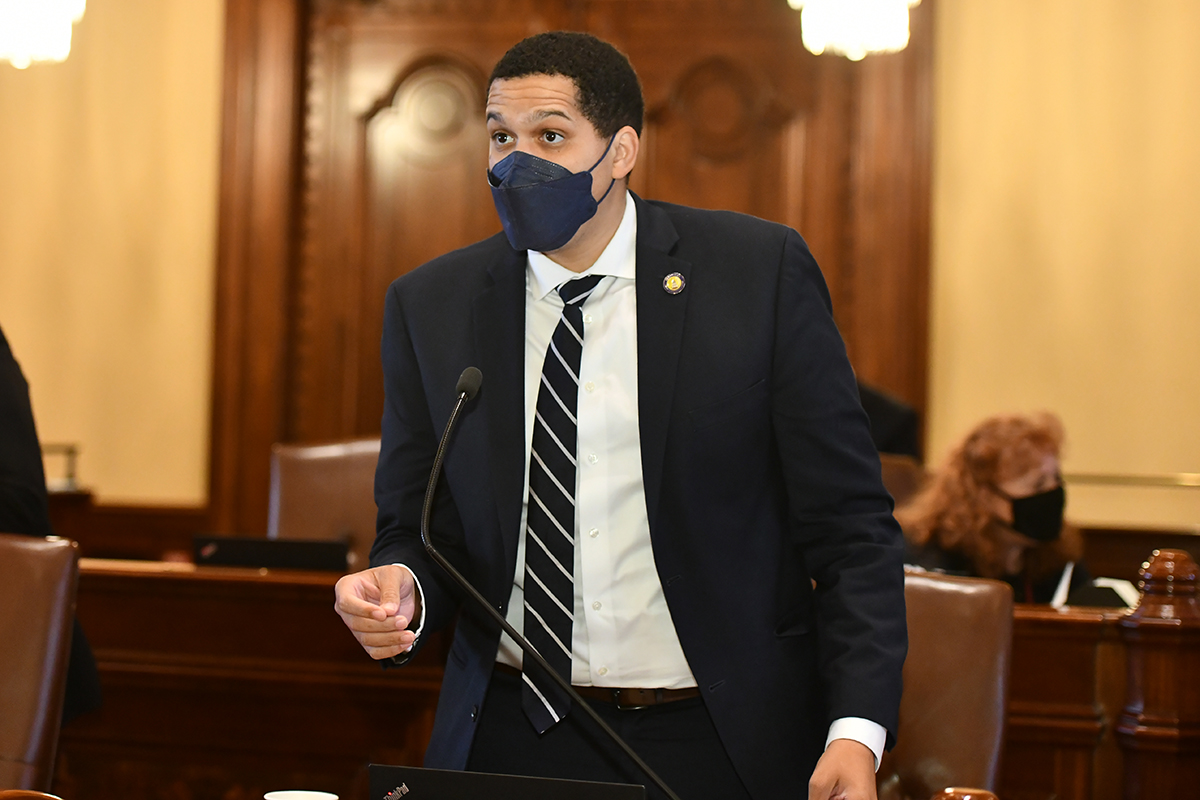
SPRINGFIELD – The Illinois Senate approved a measure sponsored by State Senator Robert Peters (D-Chicago) aimed at limiting the ability of law enforcement agencies to use intimidation tactics.
“Public safety belongs to the people, and as such, anyone who wants to should be able to participate at public hearings without fear of repercussions,” Peters said.
Under House Bill 1765, law enforcement agencies would be prohibited from conducting a background check on a person if the only reason for doing so is that they’re participating in an open, public meeting. The proposal allows some exceptions, such as when public safety is potentially at risk or in cases where the individual in question is under consideration for an appointment to a government body.
Read more: Peters’ measure limiting law enforcement intimidation clears Senate
- Details
- Category: Senator Laura Ellman News
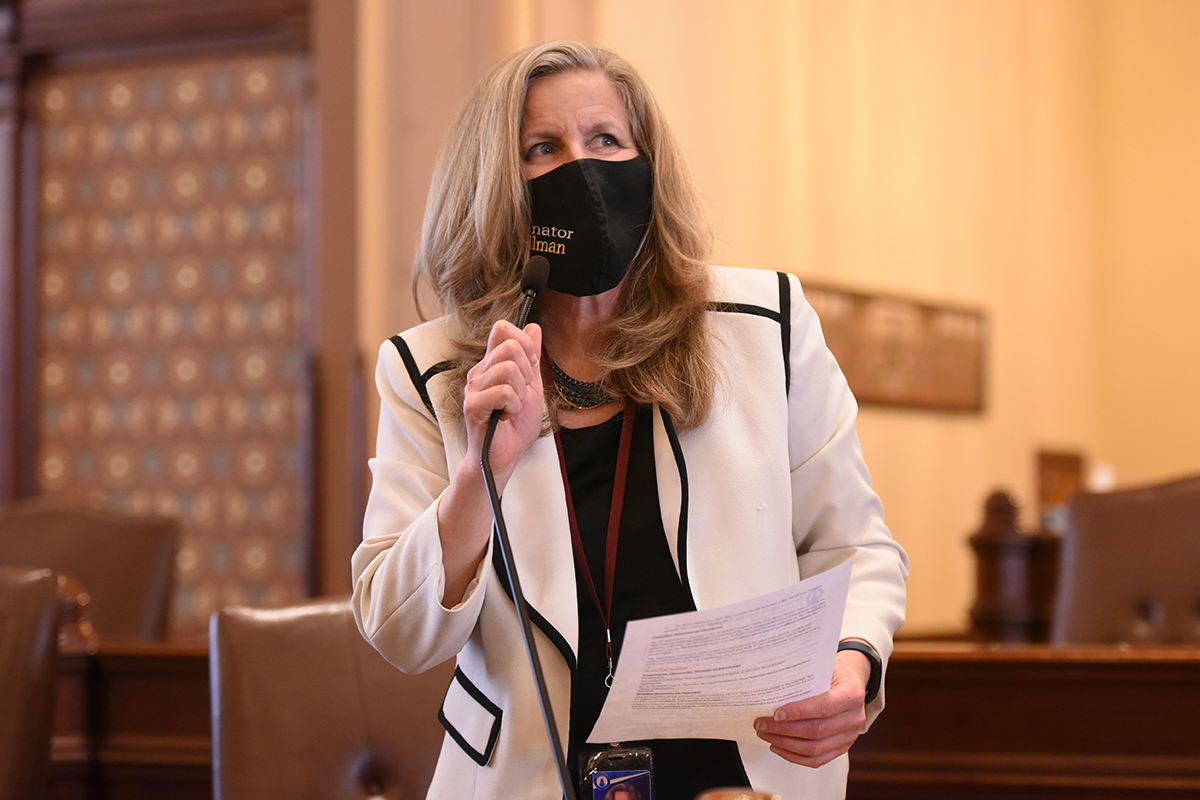
SPRINGFIELD – Alex’s Law, a measure sponsored by State Senator Laura Ellman (D-Naperville) that aims to decrease deaths from opioid overdoses passed the Senate on Saturday. The legislation would ensure that people who seek emergency assistance for an individual experiencing symptoms of an opioid overdose will not be arrested for any crime related to the use of drugs at the scene.
“Saving lives has to be our first priority,” Ellman said. “Fear of criminal charges should never prevent someone from seeking help.”
The idea for the measure came from the death of a 25-year-old Naperville resident, Alex Green, who died of a fentanyl overdose in 2018. Alex had been with others at the time of his overdose, but none of the others on the scene called 911 for assistance. This meant the officers who arrived on scene were not able to identify what had happened until it was too late, despite having Narcan (a medicine used to treat opioid overdoses) with them at the time.
Read more: Anti-opioid death “Alex’s Law” passes General Assembly
- Details
- Category: Senator Suzy Glowiak Hilton News
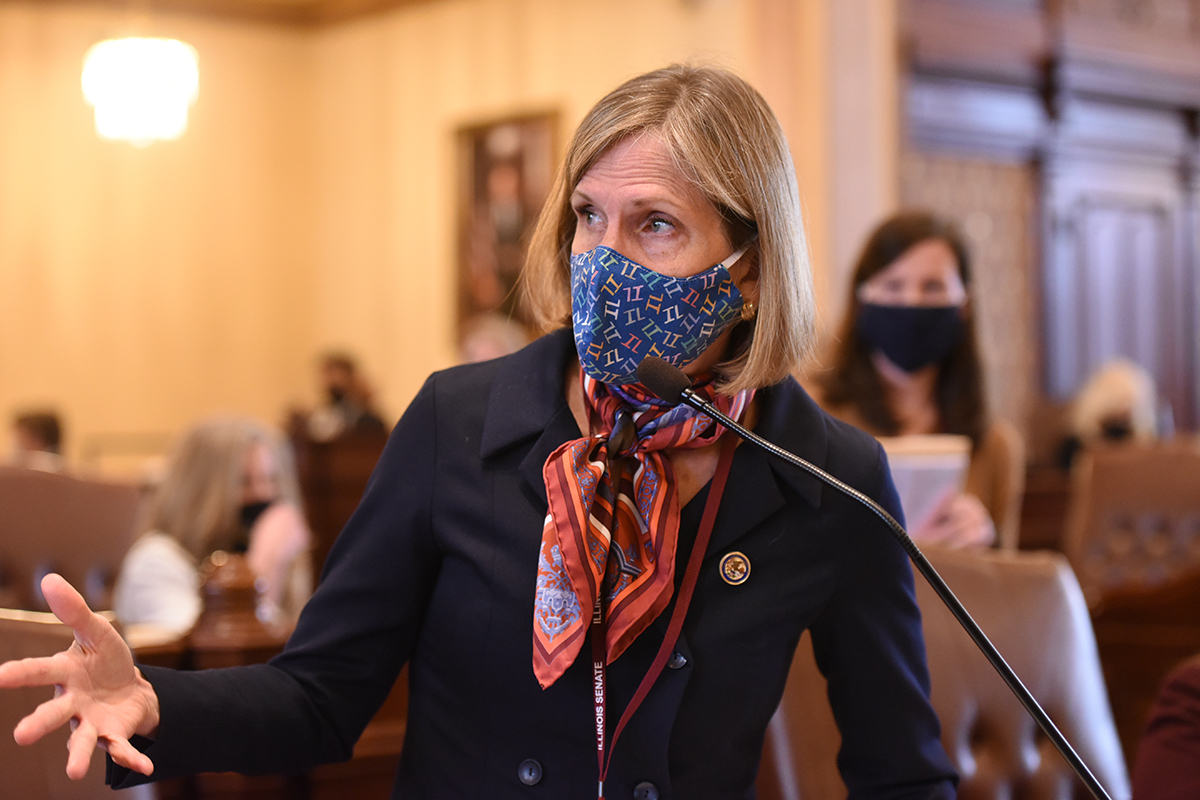
SPRINGFIELD – After it passed the Senate with strong bipartisan support, State Senator Suzy Glowiak Hilton (D-Western Springs) hopes her initiative will improve student access to mental health education and resources by allowing partnerships between state agencies.
“As our schools recover from numerous pandemic-related challenges, our state must prioritize our students’ well-being,” Glowiak Hilton said. “To ensure children are receiving the best mental health services at school, this proposal allows two key state agencies to work together to improve prevention and treatment resources.”
An initiative of the Illinois State Board of Education, Glowiak Hilton’s proposal allows board officials to collaborate with the Illinois Children’s Mental Health Partnership (ICMHP) to give students access to a wider range of mental health resources at school.
Read more: Glowiak Hilton plan ensures quality mental health resources for students
- Details
- Category: Senator Adriane Johnson News
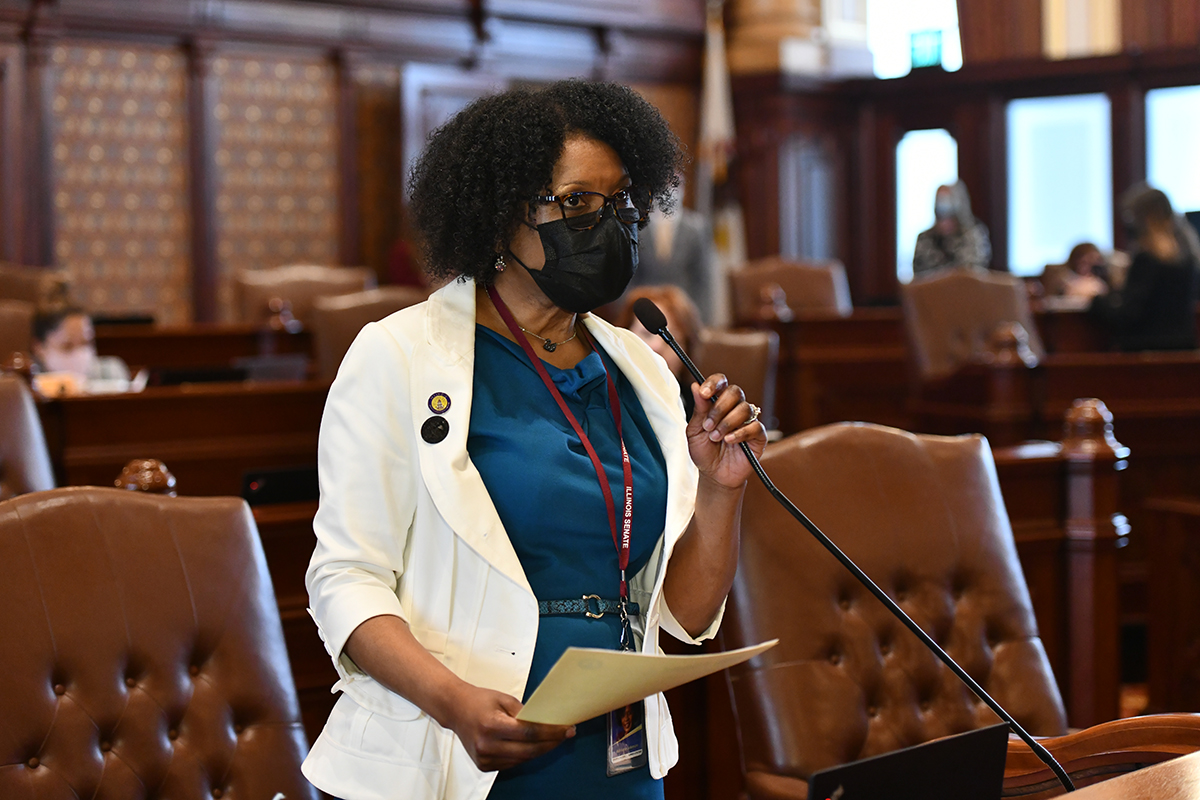
SPRINGFIELD – Community health issues could be better identified, understood and addressed under legislation sponsored by State Senator Adriane Johnson (D-Buffalo Grove) to conduct a statewide public health survey.
“As the past year has shown us, a public health crisis can impact different neighborhoods in vastly different ways,” Johnson said. “As we craft public health policy in the wake of the pandemic, it’s important that we understand each community’s unique needs.”
Johnson’s legislation would require the Illinois Department of Public Health to administer a comprehensive Healthy Illinois Survey every year to study public health and health equity in Illinois.
The survey would gather input from Illinois residents in urban, suburban and rural areas across the state. Survey questions would cover a range of topics, including access to health services, chronic health conditions, diet, mental health, physical activity, substance abuse and more.
- Details
- Category: Senator Emil Jones III News
CHICAGO - State Senator Emil Jones III (D-Chicago) has passed legislation that would create an electronic record on opioid prescriptions to help track doctors who overprescribe and help stem the ongoing opioid epidemic.
“Too many people have tragically lost their lives to the opioid epidemic,” Jones said. “Tracking opioid prescriptions can help us identify areas where these drugs are entering our communities.”
The legislation would require opioid prescriptions to be sent electronically so that they can be recorded in the Prescription Monitoring Program. An exemption could be granted for prescribers who certify to the Department of Financial and Professional Regulation that they will not issue more than 25 prescriptions per year.
Read more: Jones passes legislation that would help stem the opioid epidemic
- Details
- Category: Senator Mattie Hunter News
SPRINGFIELD – In cases such as Daunte Wright, Sandra Bland, and many others, traffic stops have escalated into police violence against Black Americans. That all too common circumstance led State Senator Mattie Hunter (D-Chicago) to pass a measure to ensure all new drivers are provided with guidance on how to interact with law enforcement during traffic stops.
“Unfortunately for Black people, traffic stops are something we know can take a rogue turn, and even end in the loss of life,” Hunter said. “Though ultimately, respectability may not always save someone from a police officers’ harmful biases, it can be helpful for drivers to be informed of their rights and what the typical protocol is supposed to be during a traffic stop.”
House Bill 3097 requires police procedures and appropriate interactions with law enforcement during traffic stops to be added to Illinois adult driver education course curriculum, as well as the State Board of Education's curriculum.
Read more: Hunter bill to add traffic stop protocol to driver’s education passes Senate
- Details
- Category: Senator Julie A. Morrison News
SPRINGFIELD – To ensure they can more easily prove they’re under an order of protection, Illinois would issue an official card for survivors of domestic violence under a measure sponsored by State Senator Julie Morrison (D-Lake Forest).
“We must do all we can to protect survivors of domestic violence and provide them with the peace of mind that they are safe,” Morrison said. “Allowing them to have a convenient way to live life with the fullest protection possible is pertinent.”
Under the measure, survivors of domestic violence who have an order of protection would be granted a “Hope Card” to carry as official documentation of the order. The driver’s license-sized, laminated card could be distributed to people who may need to be aware of the order in an easier and more convenient way than traditional paper copies.
Read more: Morrison’s measure to help domestic violence survivors passes both chambers
- Details
- Category: Senator Scott Bennett News
SPRINGFIELD – In an effort to pay tribute to the sacrifices of our fallen and disabled service members, State Senator Scott Bennett (D-Champaign) passed legislation through the Senate Saturday to create a Folds of Honor license plate for families of service members who died in the line of duty.
“Creating a personalized license plate in Illinois is a simple way for us to support Folds of Honor’s mission,” Bennett said. “With the passage of this legislation, Folds of Honor will be able to increase the number of academic scholarships for the spouses and children of fallen or disabled service members.”
Read more: Bennett champions measure to create Folds of Honor license plate decal
More Articles …
Page 466 of 762

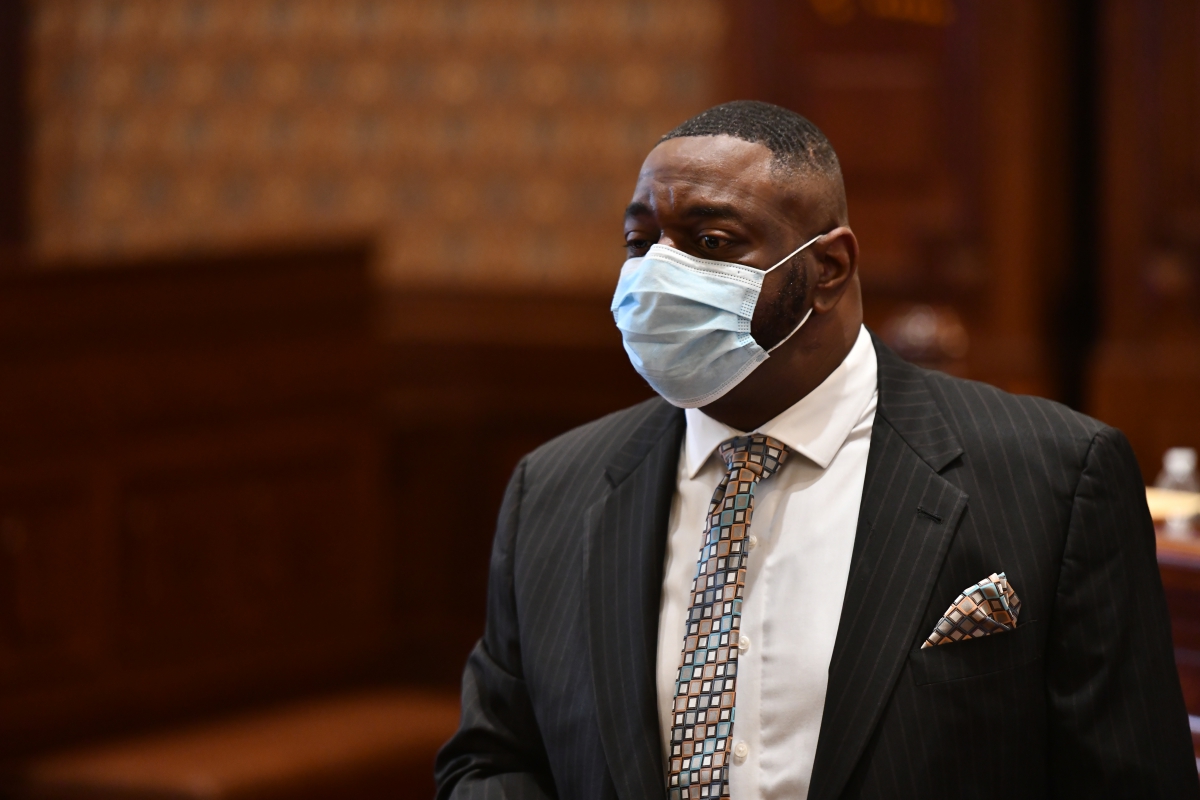


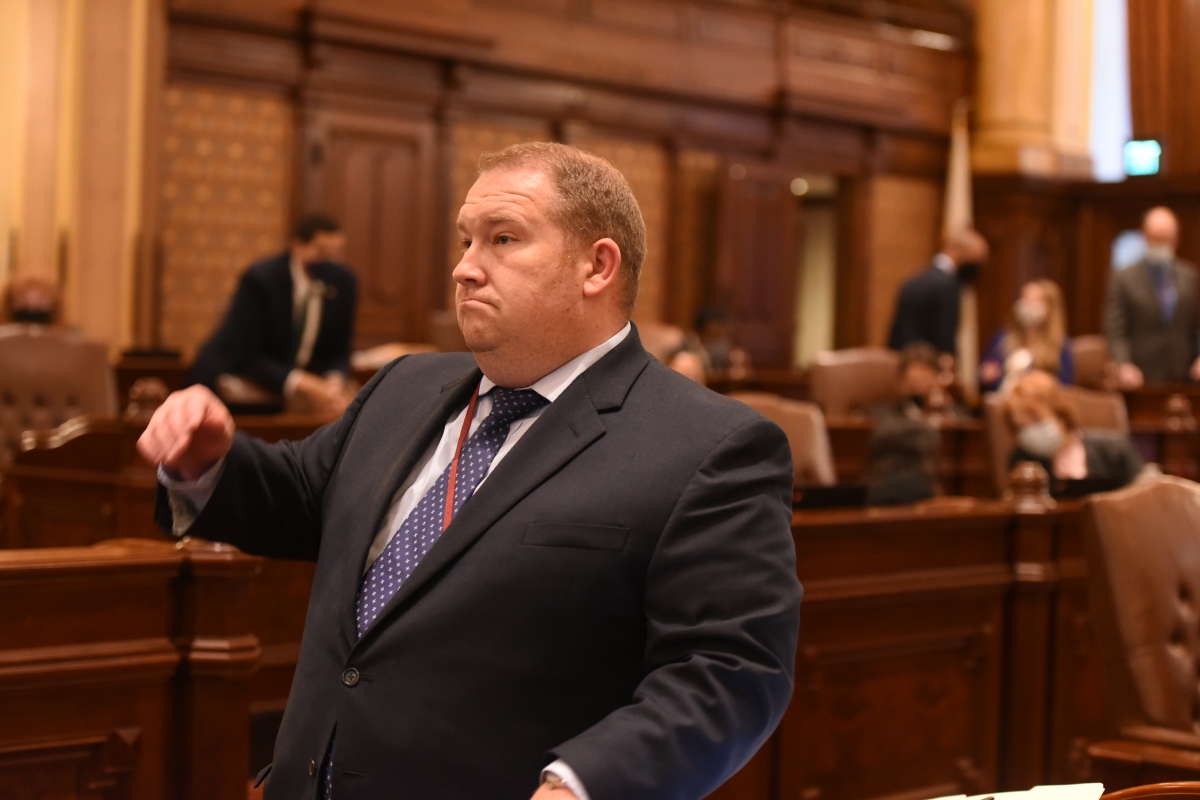












 © 2026 Illinois Senate Democratic Caucus
© 2026 Illinois Senate Democratic Caucus